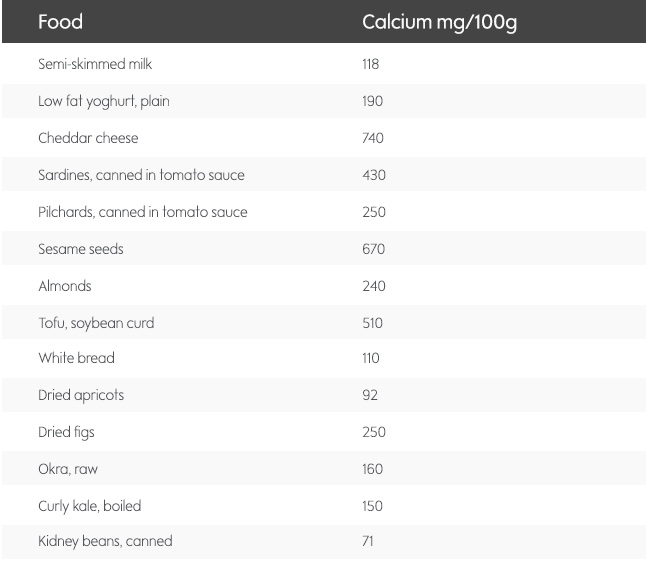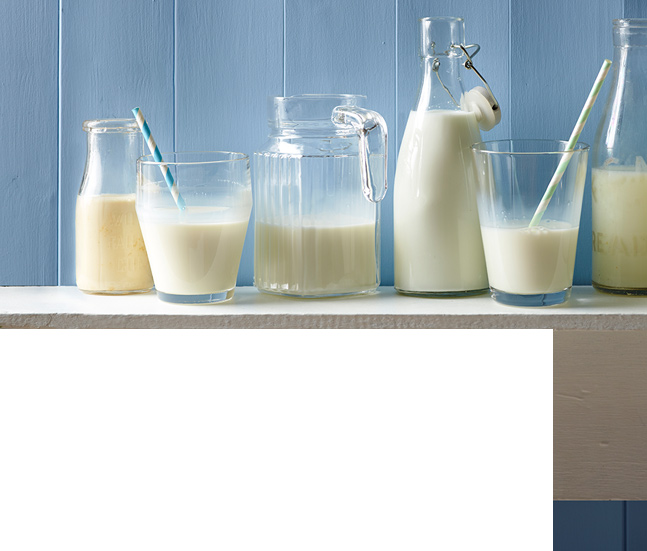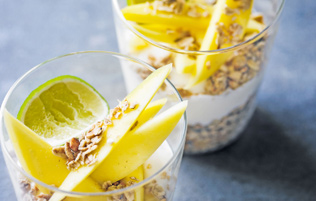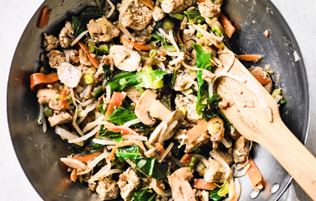What is calcium?
This mineral is essential for growth in children and helps to ensure efficient muscle contraction and blood clotting. It is also thought to help lower blood pressure whilst being vital for the normal growth and strengthening of our bones.
When we’re born, our bones are soft and pliable because they largely consist of cartilage.Calcium is essential to convert this into strong solid bone. Throughout our teenage years whilst our bones continue to grow and strengthen, we need to ensure we are consuming enough calcium to support us in later life when we suffer bone loss. In women, bone loss accelerates rapidly during menopause, increasing the risk of osteoporosis. People suffering from osteoporosis experience thinning and weakening of bones, making them prone to fracture.
Vitamin D plays a crucial role in bone metabolism and calcium absorption. Most of our vitamin D comes from normal daily exposure to sunlight. Dietary sources include oily fish, eggs and fortified foods, such as margarine.
Daily calcium requirements

* RNI - Reference Nutrient Intake. Taken from the Government's Committee on the Medical Aspects of Food Policy (COMA), Report 41.
Sources of calcium
Milk and dairy products are major sources of calcium. You can achieve your daily calcium intake by consuming three portions of milk, yogurt or cheese per day. A portion is an average-sized glass (200ml) of semi-skimmed or skimmed milk, a small pot (150g) of low-fat yogurt or a match-box sized (30g) piece of cheese.
Recipes to boost you calcium intake
Calcium supplements
You should be able to get all the calcium you need by eating a varied and balanced diet. But, if you decide to take calcium supplements, you should be careful not to take too much (no more than 1,500mg per day).
Dairy-free alternatives
The body’s requirements for calcium can be met without eating dairy products. Non-dairy foods such as, soya products, bread, nuts, dried fruit, sesame seeds, pulses, green leafy vegetables and foods fortified with calcium should be eaten in plentiful amounts.
Sources of calcium

Give your bones a boost
• Add low fat yogurt to breakfast cereal or fruit.
• Add grated cheese to jacket potatoes and pasta dishes.
• Make smoothies and milk shakes at home.
• Add dried fruit and nuts to ice cream, breakfast cereals and desserts.
• Include weight-bearing exercise in your daily routine, such as walking, running, skipping, aerobics, tennis, football and dancing, which will strengthen your bones.
• Avoid smoking or excessive alcohol intake to minimise the risks from osteoporosis.
• The minerals magnesium and zinc are also important for maintaining bone health. Magnesium is found in fish, nuts, whole grains, seeds and pulses. Good dietary sources of zinc include meat, whole grains and beans.







